Ripperologist JON REES explores the Jack the Ripper suspects named in the Macnaghten Memoranda in 1894
In this article we will look at the facts and evidence surrounding the men that the detectives investigating the Ripper case believed may have been responsible for the murders and see if there really is any proof for any of them being Jack the Ripper.
In 1894, The Sun newspaper accused Thomas Cutbush of being Jack the Ripper.
In response Melville Macnaghten wrote a memoranda for the Home Secretary briefing him on three more likely suspects for being Jack the Ripper.
These suspects were the subject of much debate during the 20th century. We will briefly examine the known facts about them and whether Macnaghten may have been correct in his accusations.
 Aaron Kosminski
Aaron Kosminski
“(2) Kosminski — a Polish Jew — & resident in Whitechapel. This man became insane owing to many years indulgence in solitary vices. He had a great hatred of women, specially of the prostitute class, & had strong homicidal tendencies: he was removed to a lunatic asylum about March 1889. There were many circumstances connected with this man which made him a strong ‘suspect’.”
Melville Macnaghten, 1894
“… the conclusion we came to was that he and his people were low-class Jews, for it is a remarkable fact that people of that class in the East End will not give up one of their number to Gentile justice.”
“I will only add that when the individual whom we suspected was caged in an asylum, the only person who had ever had a good view of the murderer at once identified him, but when he learned that the suspect was a fellow-Jew he declined to swear to him.”
Sir Robert Anderson, Blackwood’s Magazine Part VI (March 1910)
“…In saying that he was a Polish Jew I am merely stating a definitely ascertained fact. And my words are meant to specify race, not religion.”
Sir Robert Anderson, The Lighter Side of my Official Life (1910)
“because the suspect was also a Jew and also because his evidence would convict the suspect and witness would be the means of murderer being hanged which he did not wish to be left on his mind…”
“after the suspect had been identified at the Seaside Home where he had been sent by us with difficulty in order to subject him to identification, and he knew he was identified. On suspect’s return to his brother’s house in Whitechapel he was watched by police (City CID) by day & night. In a very short time the suspect with his hands tied behind his back, he was sent to Stepney Workhouse and then to Colney Hatch and died shortly afterwards – Kosminski was the suspect – DSS.”
Donald Swanson, written in his copy of McNaughtens Biography “The Lighter Side of my Official Life”
From these statements it would seem that Macnaghten strongly believed it was possible for Kosminski to be the Whitechapel murderer and that Anderson and Swanson were positively convinced of the fact. But how conclusive is the actual evidence?
The police officials account on Kosminski differ greatly from known facts – especially on dates regarding his committal and death.
Also, despite Macnaghten ’s reference to “strong homicial tendencies” Kosminski seemed to spend most of his life placid and incoherant. His medical records do list an attempt prior to committal where he threatened his sister with a knife and an incident where he attacked a staff member with a chair, but they list his behaviour as mostly being non-violent and it seems the most disturbing result of his “mania” was his habit of eating food out of the gutter. It is unlikely that Kosminski could be Jack the Ripper a) why did violent behaviour not manifest itself in later life and b) how could a disheleved lunatic who eats out of the gutter convince prostitues to go to seculded areas with him.
I feel that Kosminski’s candidacy as a suspect is more a reflection on the archaic Victorian attitude to mental illness (and religion) than the result of a thorough investigation by the leading men in the Metropolitan Police.
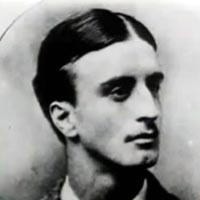 Montague John Druitt
Montague John Druitt
“The truth, however, will never be known, and did indeed, at one time lie at the bottom of the Thames, if my conjections be correct!
…
1) A Mr M. J. Druitt, said to be a doctor & of good family — who disappeared at the time of the Miller’s Court murder, & whose body (which was said to have been upwards of a month in the water) was found in the Thames on 31st December — or about 7 weeks after that murder. He was sexually insane and from private information I have little doubt but that his own family believed him to have been the murderer.”
Melville Macnaghten, 1894
More information is contained in a draft version of the memoranda:
“Mr. M.J. Druitt a doctor of about 41 years of age… on it was found a season ticket between Blackheath & London… it was alleged that he was sexually insane.”
Melville Macnaghten, 1894
Again, Macnaghten makes significant errors of fact: Druitt was a Barrister and School Master, not a Doctor; He was 31 at his death, not 41; and he did not go missing at the time of the last murder, he dissapeared on December 3rd (just short of a month after the Kelly murder) after being dismissed from his position as a School Master on November 30th.
Some authors have suggested the reason for Druitt’s dismissial was homosexuality and possibly abuse of his young charges at the school, though there is no evidence for this (though it may explain the “sexually insane” comment by Macnaghten . It is possible that Druitt may have been Night Master at the school, and if this is the case then it would have been extremely difficult for him to sneak off duty, travel to Whitechapel, commit a murder and then travel back blood stained and sneak back into the school without being caught – especially considering the late hour of Chapmans murder (sometime between 5.30am and 6am).
Druitt does not appear to have any history of violence, but there was a family history of mental illness – in his suicide note Druitt mentions fears that he is “going to be like mother”, and his mother Ann was in an asylum. This was however following a suicide attempt and the result of depression, not a violent disorder.
There is no evidence whatsoever that Druitt may have been the Ripper. Macnaghten gets basic facts about him wrong (including when he disappeared), there is no evidence of any kind of “sexual insanity” and we do not know what evidence his family may have had (if Macnaghten is correct) that indicated to them he may have been the killer, but there is no reflection of it in the public record.
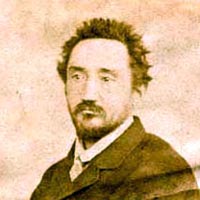 Michael Ostrog
Michael Ostrog
“Michael Ostrog, a mad Russian doctor and a convict and unquestionably a homicidal maniac. This man was said to have been habitually cruel to women, and for a long time was known to have carried about with him surgical knives and other instruments; his antecedents were of the very worst and his whereabouts at the time of the Whitechapel murders could never be satisfactorily accounted for. He is still alive.”
Melville Macnaghten, 1894
Again, there is little evidence to support Ostrog being Jack the Ripper. He was a habitual criminal who engaged in petty theft and spent much time in prison. The only evidence of him being violent was when resisting arrest!
There is no evidence of him being habitually cruel to women or that he carried knives (surgical or otherwise). Though his whereabouts at the time of the murders was never “satisfactorily accounted for”, this is because he was quite possibly in prison in France awaiting trial for stealing a microscope.
Conclusion
It seems that Macnaghten may have been incorrect in all three of his accusations. There is no evidence that any of the men may have been Jack the Ripper and the known facts may even point to the contrary. He also gets very basic facts about each of them wrong. It should be noted that Macnaghten was not a member of the Metropolitan Police at the time of the murders (though Anderson and Swanson were!) and it has been suggested that the memoranda may have been written following intense political pressure as Cutbush’s uncle may have been a senior police officer (though the genealogical link has not been conclusively proven).
JON REES has a blog where he discusses all sorts of things, including crime and Jack the Ripper. Read the blog here and follow him on twitter here.


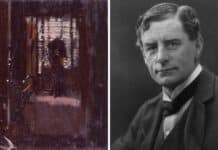

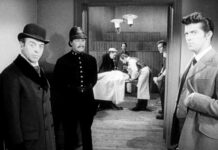


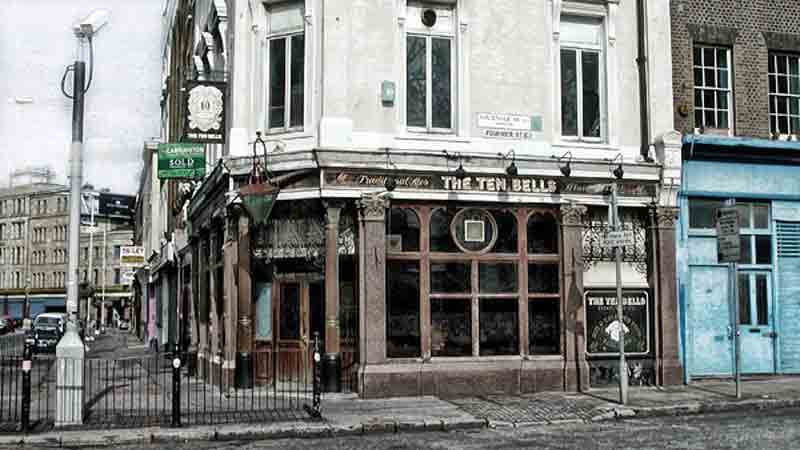
you people have he same info of the other websites i have went thruogh. i have been looking for the biography of michael ostrog and i havent found any info about his life and hiss family. all i have found is info of him being the killer of the women who were killed in the whitechaple murder case